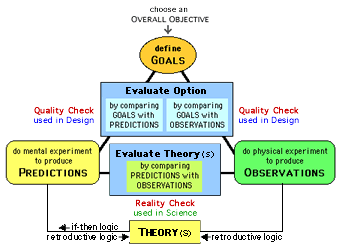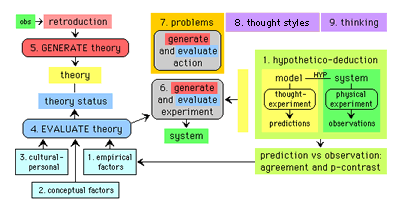Ideas for Education:
Instead of reading this page first, I suggest that — to find links for my main “education” pages and bio-page (about life on a road less traveled) and a wide variety of other pages — you should begin with my Home Page. Or, if you want, read what's below.
for Using Design-Thinking Process in Problem Solving & Education (my main project),
including 4 Ways to Use Experiments in a problem-solving process of Design Thinking,
and 3 Years of Round Table Discussions (2014-2016) for the California STEM Symposium:
Building Bridges between Engineering and Science to Improve NGSS Practices,
Improving Diversity and Equity with Transfer-Bridges & Transition-Bridges,
Using a Process-of-Inquiry to Teach Principles-for-Inquiry.
links for sport-science, learning to ski, improvising music, juggling,
my sister, and more, in pages that I (Craig Rusbult) have written,
plus a bio-page that is similar but with some "religious content",
and Lab Education that will help students improve their ideas-and-skills.
Using Design Process in Education
I'm excited about education and ideas for improving it, but I realize that you're busy with other exciting ideas, and things you must do. Therefore, since January 2012 I've been developing a website — Using Design-Thinking Process in Problem Solving and Education — with a comprehensive set of summaries that include links to “more” so you can decide what to explore and in how much depth. This gives you freedom to customize your learning, to learn as much as you want (in 1 minute, 10 minutes, 100 minutes or more, in whatever time you're willing to invest) about the combination-of-ideas you choose.
In the rest of this page you'll find:
Information About the Author
Lab Education — Using Science Labs to teach Scientific Ideas-and-Skills
Using Design Process (which includes Scientific Method) for Education
Potential Educational Applications of Design Process
Eclectic Instruction for Effective Education
plus
My Presentations at Science Education Conferences in 2011
Two of my many Diagrams for Design Process & Science Process
A Table of Contents for the pages about Using Science Labs ...
About the Author, Craig Rusbult — I'm an educator with a Ph.D. in Curriculum & Instruction (from UW-Madison) and lots of experience in Chemistry, leading to ACS “best chemistry student” awards, an NSF Fellowship, and M.S. degree; through 2012, I was on the academic staff of UW's Chemistry Dept, teaching part-time, and I have lots of ideas about education. You can see these ideas in the summaries above & below, and in more detail when you click the links. My PhD project was developing a model of Scientific Method and using it for the integrative analysis of a creative inquiry classroom.
A bio-page includes a brief history of my life (on a road less traveled), other information, and links to pages about music, juggling, how I didn't learn to ski (and then did), and more.
I'm looking for a position in education, as explained in Collaboration to Improve Education which looks at decisions from two perspectives — "as part of my plan for converting ideas into action, I want to work with other educators to develop curriculum & instruction" and "as part of your plan for improving the quality of education, why might you want to work with me?" — which leads to an explanation of "why" and a web-portfolio that describes influences (on my thinking) and shows some results, including a comprehensive textbook, Physics: Tools for Problem Solving.
LAB EDUCATION
Using Science Labs to teach Scientific Ideas-and-Skills
You can see strategies & attitudes that can be useful to Develop a Creative Community for Lab Education (and when you click this link, general principles for "Developing a Creative Community" are in the left-side page), plus Teaching, Learning, and Grading in Science Labs. { For extra details, My Educational Philosophy for Lab Education begins by explaining that "this page is personal because it's my own philosophy of education, but it's also general, with many useful principles that might help you improve education at your school." }
also: examples of Thinking Skills (scientific methods of thinking) in General Chemistry Labs
Teaching, Learning, and Grading in Science Labs examines principles for designing goal-directed lab education, with goals of helping students learn useful skills, including Scientific Method.* A different perspective on these ideas, and others, is in summaries (available in HTML & PDF & PPT) for my presentation at the national meeting of ACS in 2011.* An even briefer summary is in my abstracts for ACS-2011 (in March) and (in July) ChemEd-2011. / * These ideas are expanded with more detail in an earlier unrevised version, Teaching Scientific Method in Science Labs. What's in these pages? (see end-of-page Appendix) / (more about my talks for these conferences)
* To make labs more effective in helping students learn scientific concepts and thinking skills, a basic strategy used by most teachers — search for thinking-and-learning activities (in current labs, or added to current labs, or in new labs) that give students experience with valuable ideas-and-skills that are worthy educational goals, and develop teaching methods that will help students learn more from their experiences — can be creatively developed with attention to important details. Goal-Directed Designing of Curriculum & Instruction
The four summaries that begin this page are a quick “executive summary” overview of Design Process and its potential educational applications. Here is information about the related Science Process:
• My model of Science Process (scientific method) is closely related to Design Process because Science is a special type of Design, so Science Process (which uses scientific methods of thinking-and-action) is a specialized application of Design Process.
• An interesting educational application of Design Process, which is a learning strategy for a mental-and-physical skill, is A Problem-Solving Strategy for Improving Pronunciation. comments: This application is unusual (it's an application of a strategy) because the objective is a physical skill (using the mouth-lips-tongue-etc to produce sounds) instead of the cognitive-and-metacognitive skills that are the focus of Design Process, and will be the focus of most future instructional applications.
Eclectic Instruction for Effective Education
Key ideas are summarized in Active Learning Theories & Teaching Strategies along with links to pages where you can learn more. I want to encourage an eclectic combining of the benefits offered by various approaches (explanatory instruction, guided inquiry, and activities for application-and-extension) in our efforts to design optimally effective instruction to teach a wide variety of ideas-and-skills. { This page about "active learning" has many IOUs and loose ends, but also also lots of interesting ideas; some are from me, but most are in its many links to pages by other authors. }
Here is a summary of my views: Sometimes in education there is a tendency to think that, for a personally preferred approach to instruction, “if some is good, more would be better, and all would be best.” But this doesn't seem wise. Instead, there are logical reasons to expect that an eclectic mixture will be more effective. I appreciate the educational usefulness of clear explanations. In fact, most of what I know has been learned from people who were kind enough to explain what they knew, to help me learn. I think we should invest more effort to improve explanations, by using constructivist ideas (which urge us to develop a flow-of-logic based on a consideration of what students know and how they think) and using explanation-based instruction within a context that includes some discovery-based instruction, plus lots of student activities (some using Design Process) for application-and-exploration. / To see my most recent revision, search for "Benefits of Eclectic Education" in my new website about Design Process in Education.
Details about Conferences in 2011
At the conference of ChemEd 2011, July 24-28, I did two presentations (talk & poster) about Using Design Process for Problem Solving and "Thinking Skills" Education.
Earlier, at the National Meeting of the American Chemical Society in late-March 2011, I had a paper-talk (about Lab Education to teach Scientific Thinking Skills) and did a poster session (Using Design Process for Problem Solving and "Thinking Skills" Education) twice.
• Abstracts for ACS and Abstracts for ChemEd
a verbal-and-visual model of my Integrative Design Process [ full-sized diagram with no photo-reduction ] |
a verbal-and-visual model of my Integrated Scientific Method [ full-sized diagram with no photo-reduction ] |
|
 |
 ( groups of related ideas: 1-2-3-4 and 4-5-6-7 and 8-9 ) |
There are also versions of these diagrams that have more details, for
Integrative Design Process and Integrated Scientific Method.
APPENDIX
Here is a Table of Contents for two pages in the section about
Using Science Labs to teach Scientific Thinking Skills:
Teaching Scientific Methods of Thinking in Science Labs
BRIEF SUMMARY (of the main ideas)
Thinking Activities (examples and principles)
Teaching Methods (reflection requests, student responses by talking & writing, inquiry activities)
Designing a Lab Curriculum (student motivations, integrative analysis of activities-and-goals)
plus extra topics:
Using Scientific Method & Design Process for Education
Pros & Cons of Discussion-Based Labs (with no reports)
Student Motivations (Part 2) - Reasons & Intentions, Teamwork & Persuasion
Evaluation Activities, Hybrid Two-Response Labs (with discussions + reports)
plus an appendix — My Histories with Scientific Method and Lab Education,
More about Inquiry Activities, Lab-Grade Weighting, Lab Questions for Exams
Thinking Skills in General Chemistry Labs
Two Overviews, History & Disclaimers, and lab activities in five sections ( Thinking Skills using Observation-and-Imagination, Thinking Skills for Mathematical Data Analysis, The Logic of Science, The Logical-and-Social Process of Science, Using Inquiry to teach Thinking Skills )
Standards for K-12 Engineering Education?